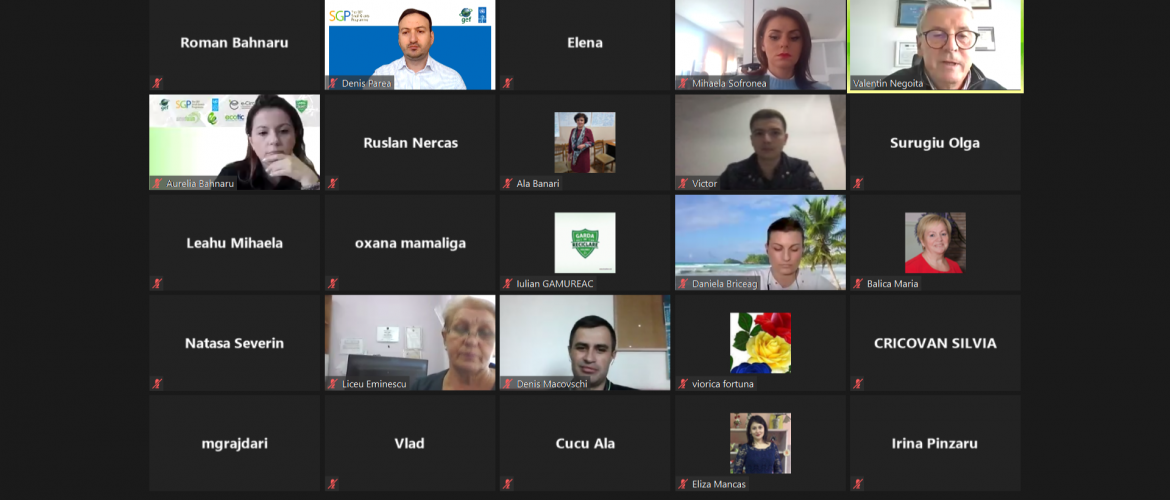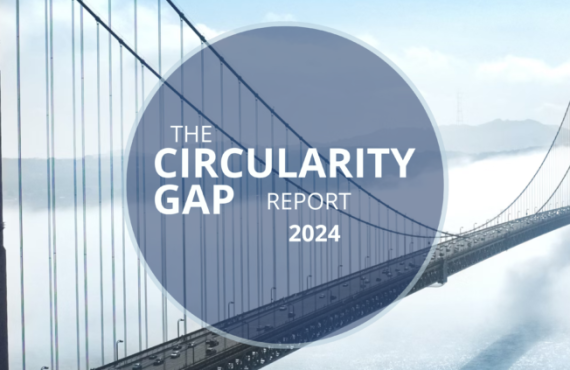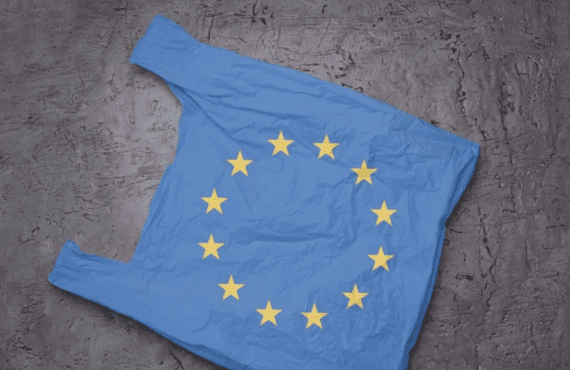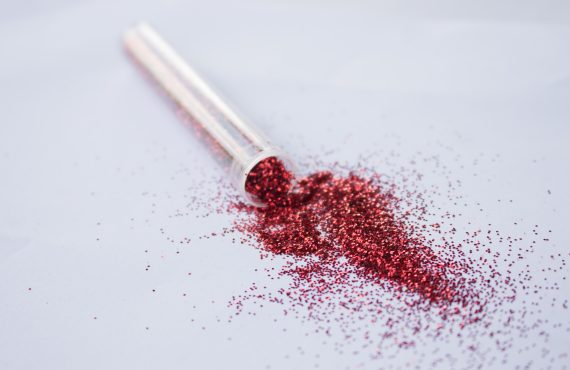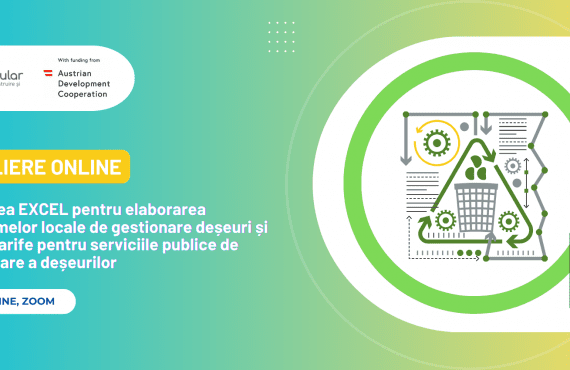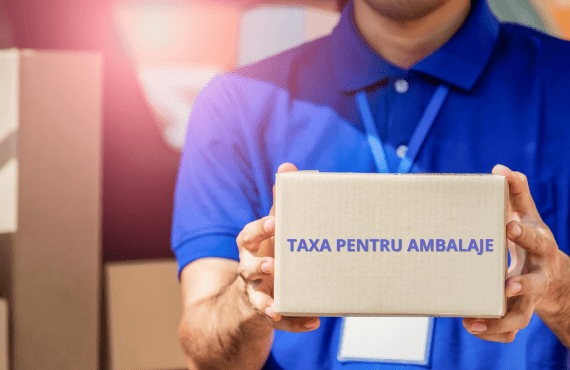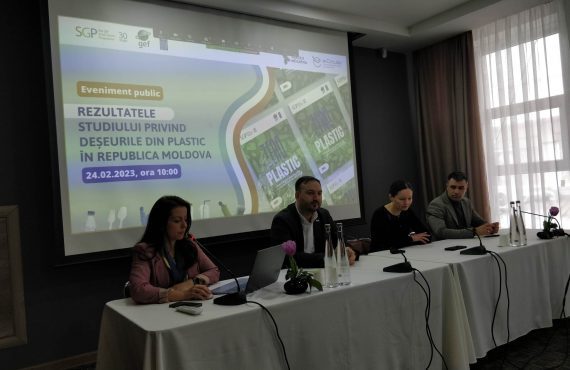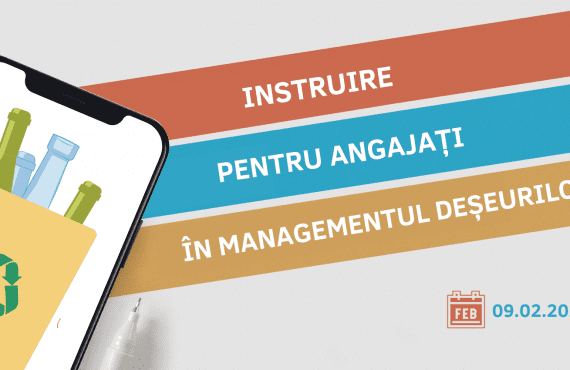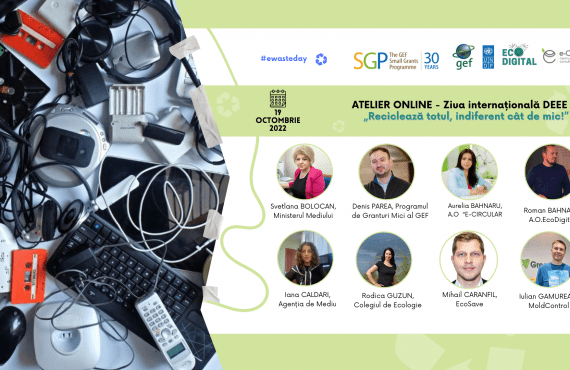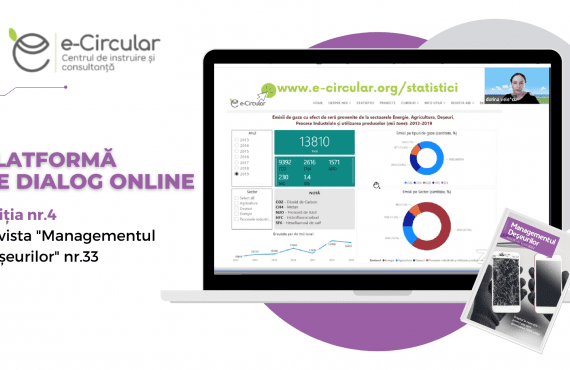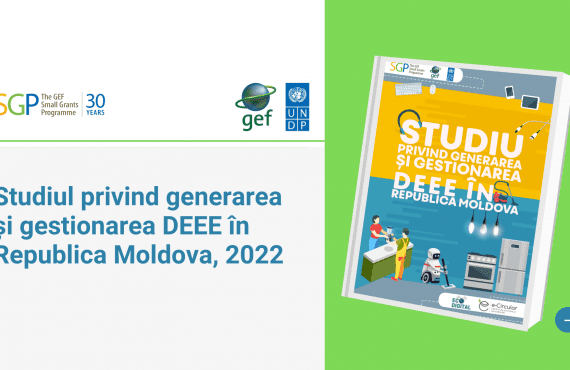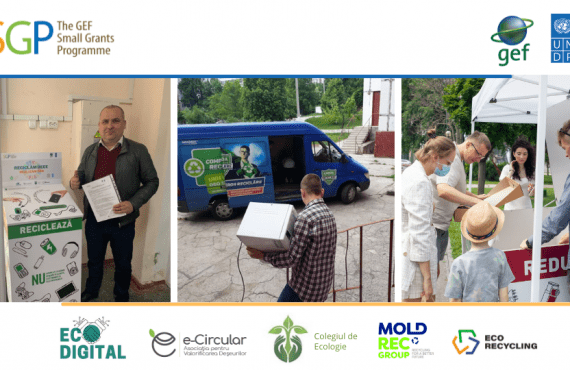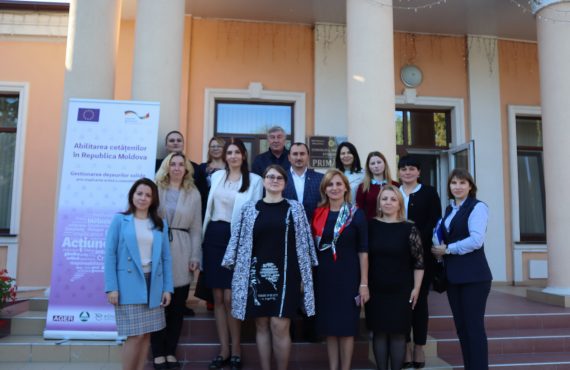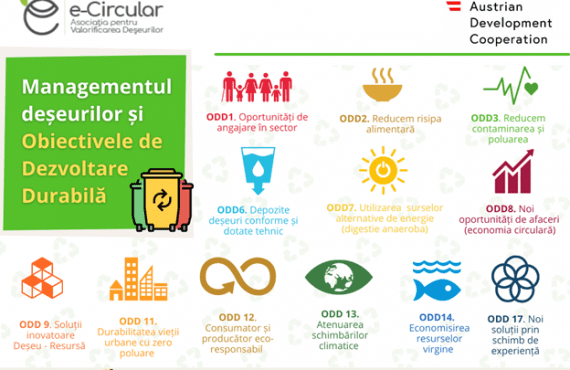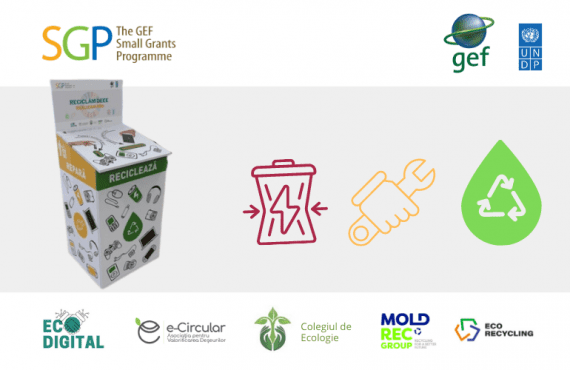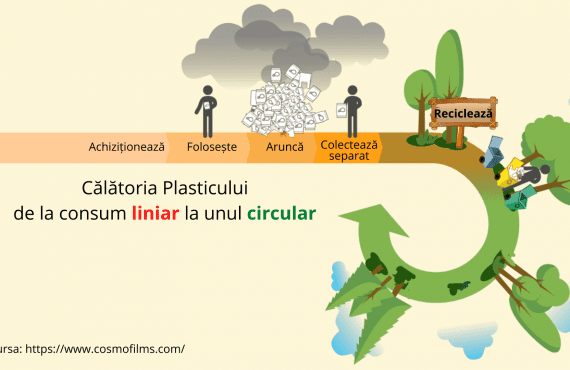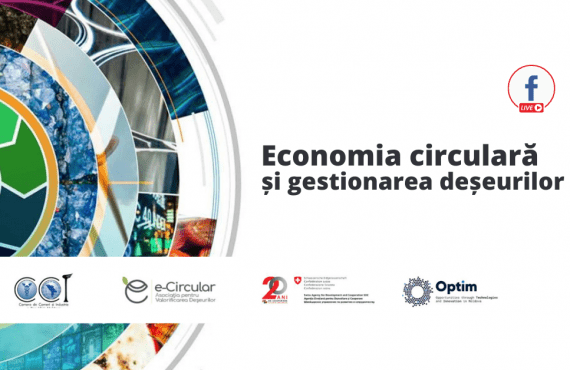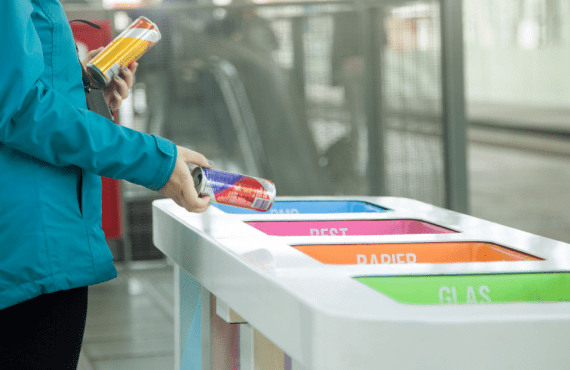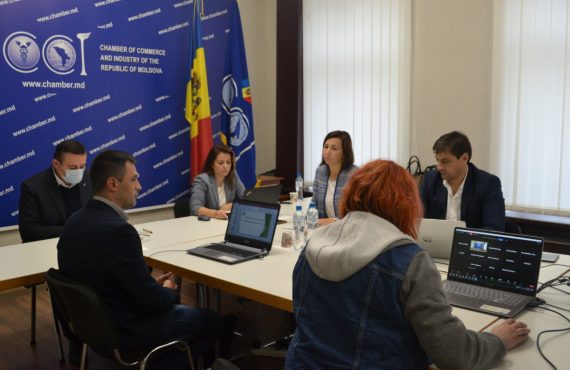Today, October 15, AO Association for Waste Recovery started the online conference "DeeeEDU: Through EDUcation we save the new generations” with the aim of discussing the most urgent problems related to the management of WEEE and the new challenges with the outbreak of the COVID-19 pandemic and respectively the even more accelerated growth in the coming years of the amounts of WEEE generated, this in the conditions where recycling rates are kept very low.
In the event, several experts in the field from Romania and the Republic of Moldova participated, who presented relevant and very useful data for improving the perception of WEEE generators, the necessary tools to increase collection rates and recovery targets, as well as the role of digitization in promoting the circular economy and directly increasing the level of awareness and information in the field.
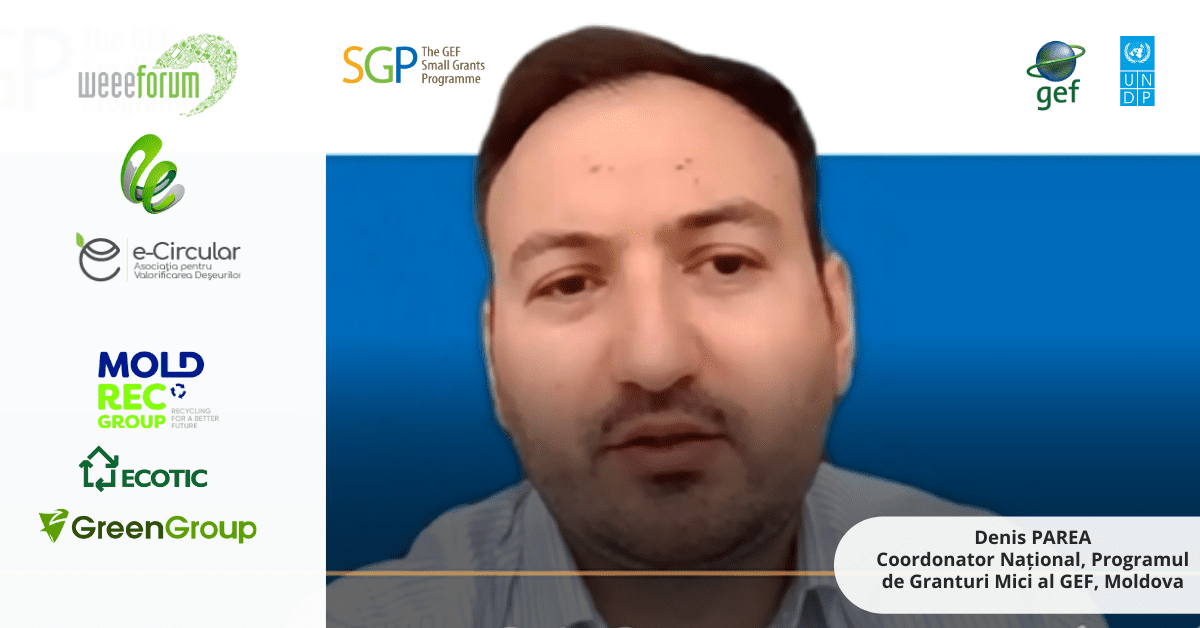
The event is part of the "Clean city with recycled e-Waste" project, implemented by Association for Waste Recovery with P supportof the Gef SGP Moldova small grants program, implemented by UNDP in partnership with the authorized operator MoldRec. For this reason, the conference was officially opened by Mr. Denis PAREA, National Coordinator, GEF Small Grants Program, Moldova, who emphasized the importance of the topic addressed in the context in which worldwide the amount of WEEE generated reached 53 .6 million tons, but maintaining a very low recycling rate of only 17.7%. In this context, Mr. Lui reiterated the positive impact of the project launched by AVD in 2018 and its role in increasing the population's awareness of the eminent danger of WEEE.

By organizing this conference, the Republic of Moldova officially joined the 3rd edition of the campaign promoted by Weee Forum along with 112 other organizations from 48 countries. At the same time, on this occasion we were honored to start the conference with a word of greeting from Mr Valentin NEGOIĂ President of Ecotic, Member of the Board of Directors WEEE Forum. The experience of the President is significant for the actors involved in the management of WEEE in the Republic of Moldova. An important aspect noted by Dul Negoiță is the role of partnerships in the process of consolidating the efforts necessary to carry out the selective collection and recycling of WEEE.
Unfortunately, on the agenda of many mayors and other representatives of local authorities, this topic is not of interest, which makes it even more important to involve NGOs, EEE manufacturers and authorized operators in intensifying information campaigns and more logistical efforts by expanding the collection infrastructure absolutely necessary to reach the targets set by the legal framework (5% for producers from the Republic of Moldova in 2020 and 65 % for Romania and other European countries). According to Mr. Negoiță, reaching the target of 65 % of WEEE collection will be extremely difficult to achieve, which is why WeeeForum together with its members made an approach to the EU to take into consideration the calculation method of this target, considering that many times the life cycle of some WEEE exceeds 10 years and many collection centers have been closed/defective and the collection capacity has been greatly reduced. In fact, no country in Europe, with the exception of Ireland, will reach these targets, even though we are talking about countries with developed infrastructure such as France - 45 %, Italy - 47% or the Netherlands - 56%.
An important topic discussed at the conference by Aurelia BAHNARU, AVD President, belongs to the consequences of the pandemic on the increase in the coming years of the amounts of WEEE generated, this under the conditions in which distance working/studying is becoming the norm and the demand for IT equipment has increased considerably. Just as an example, until the pandemic, in Europe, around 160,000 laptops were sent to landfill every day, even though 3 quarters of them could be refurbished and reused, while a large part of the remaining 25% would could be used for new parts and recycled in a sustainable way. Under these conditions, it is urgent to intensify efforts to apply the most effective solutions, which would avoid a total collapse of the current WEEE management system.
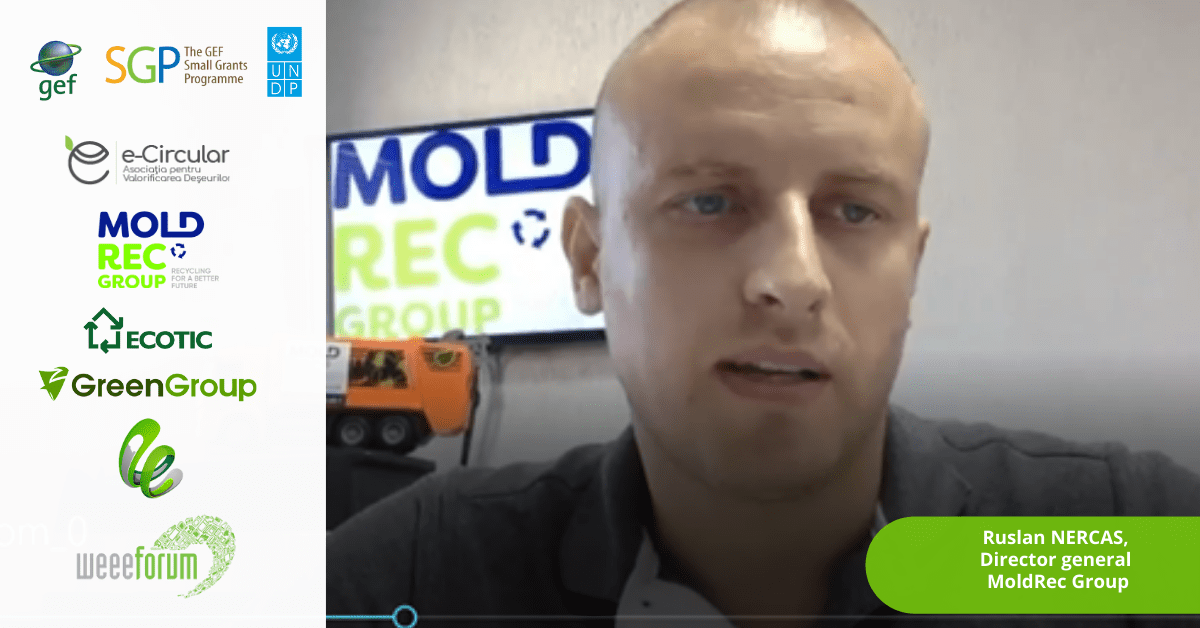
WEEE is a time bomb, confirms Dul Ruslan NERCAS, managing director of ModRec Group. The company started its activity in 2015, and in 2019 it managed to collect and export 298 tons of WEEE. By the end of the year, the authorized operator plans to organize in partnership with MoldControl a collection campaign that will last 30 days, called Recycle mania. At the same time, for the next year, together with external partners, it is planned to implement a Eco Center following the Canadian model, but adapted to national realities with effective disposal solutions for all types of hazardous waste. MoldRec Group ensured that all WEEE collected, including within the project implemented by AVD, reach one of the largest recyclers in Europe, Green WEEE Buzău, and Ms. Mihaela SOFRONEA, PR&Marketing Manager Green Group, WEEE & Glass Recycling Division, present at the event, reconfirmed that absolutely all e-Waste ends up being properly recycled, and the obtained raw material returns to the economic circuit.
Who are the producers of EEE in the Republic of Moldova and what is the mechanism for implementing Extended Producer Responsibility through (individual system / collective system), including their obligations, spoke Dul Denis MACOVSCHI, representative of the Environment Agency. When supplying a new product, at the request of the buyer, the distributors collect the WEEE according to the model "one to one", without requiring payment for the handing over of WEEE, of course if the equipment is of an equivalent type and performed the same functions as the newly supplied equipment.
A premiere topic was discussed and presented by Roman BAHNARU, Data analyst, AO EcoDigital, namely WEEE in the context of the digitalization of the circular economy. The ICT sector currently represents 2% of global GHG emissions, amounts comparable to the aviation sector, also causing biodiversity loss and water pollution due to the resources used in the extraction process. In the context of an unsustainable ICT sector, WEEE represents a missed economic opportunity. The solution presented in this context is – Digital Circular Economy, which involves the promotion of 3 basic enablers such as improving knowledge, connection and information exchange, more sustainable business models and strengthening the role of citizens in this process.
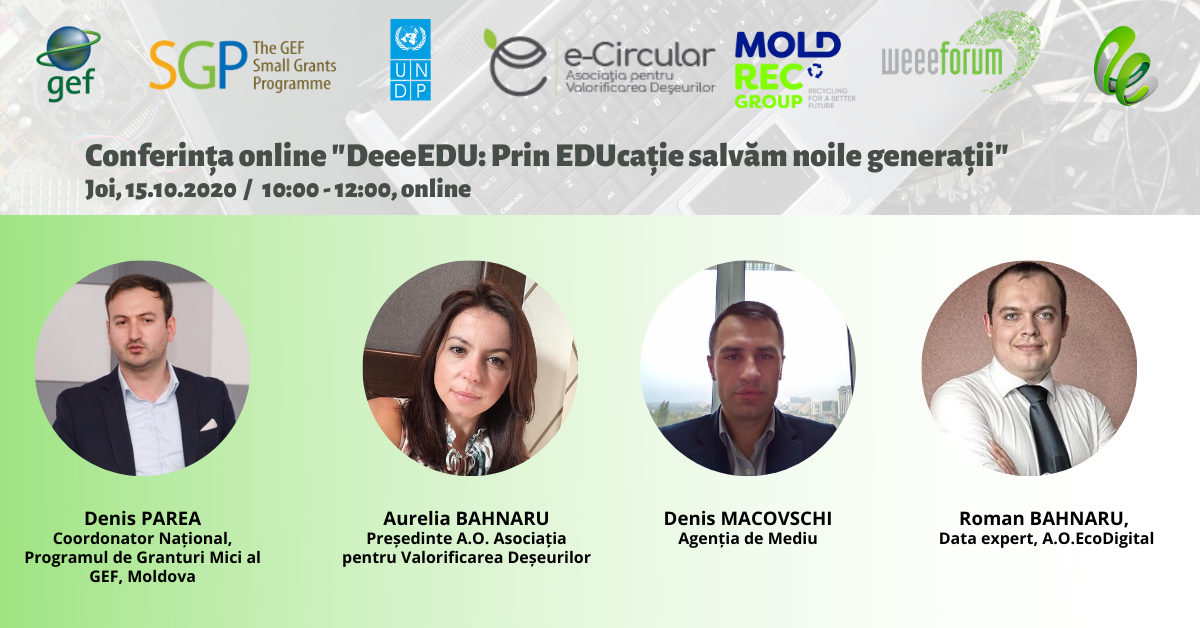
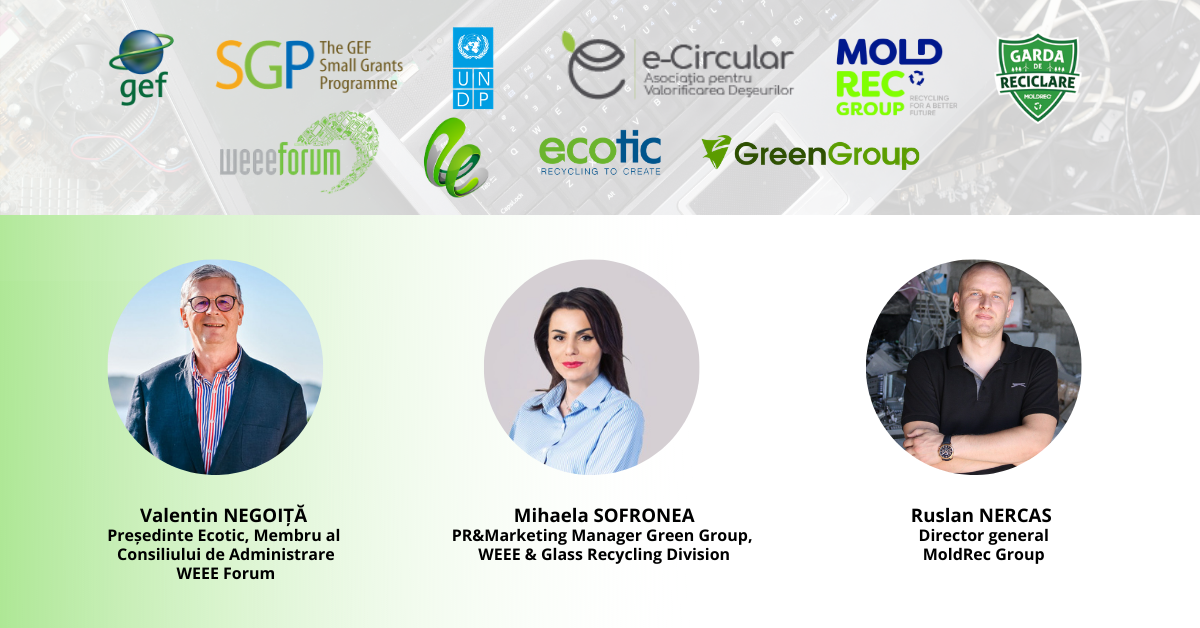
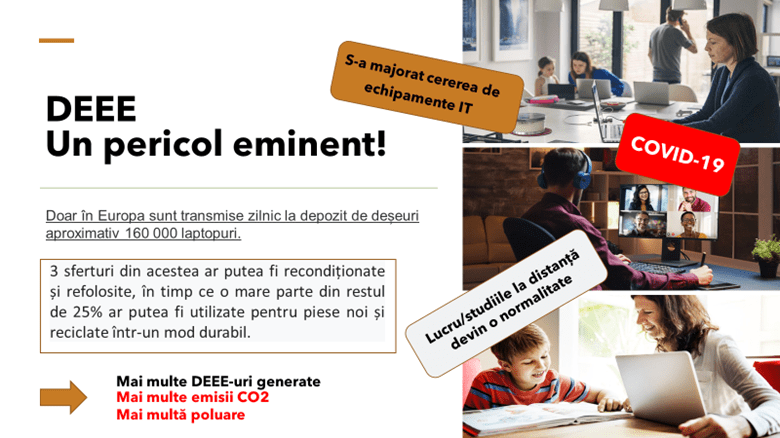
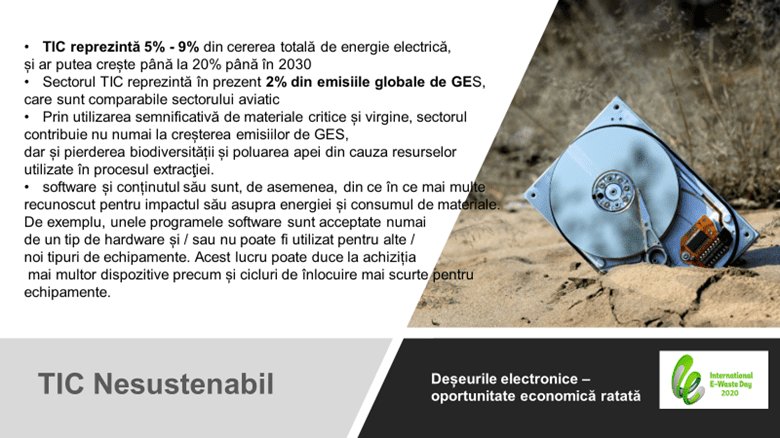
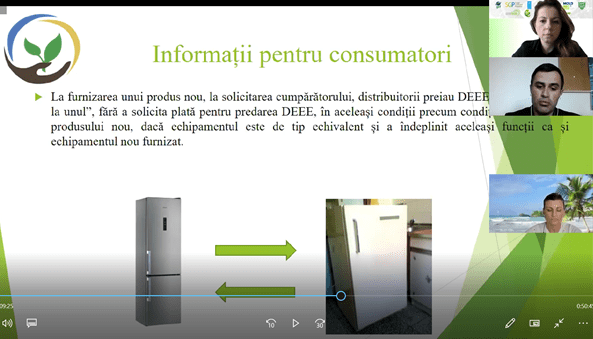
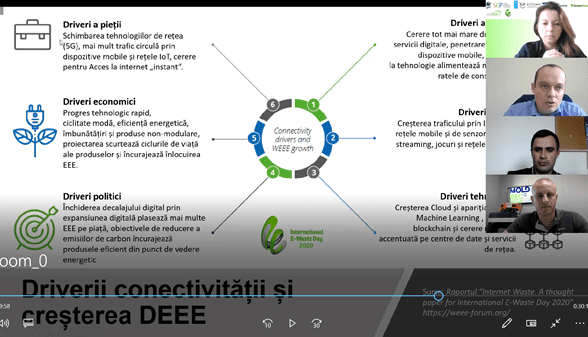
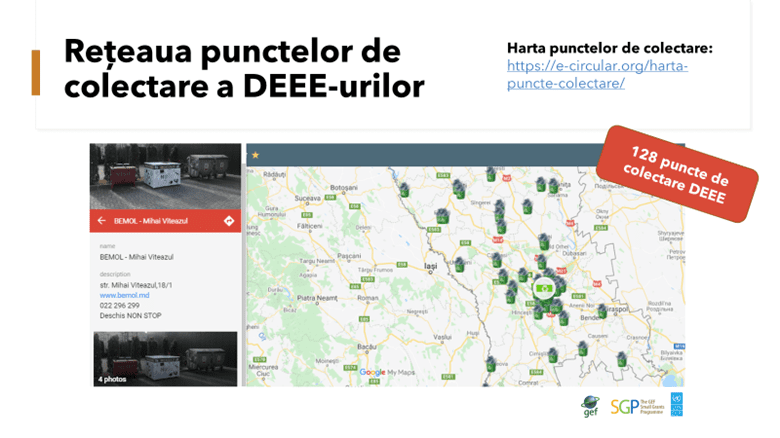
The project "Clean city with recycled e-Waste–– Recycle today for your health tomorrow” was launched at the end of 2018 by the AO “Association for Waste Recovery” with the support of the Small Grants Program GEF SGP Moldova, implemented by UNDP and in partnership with the company Moldrec.
Map of WEEE collection points created within the project – https://e-circular.org/harta-puncte-colectare/

